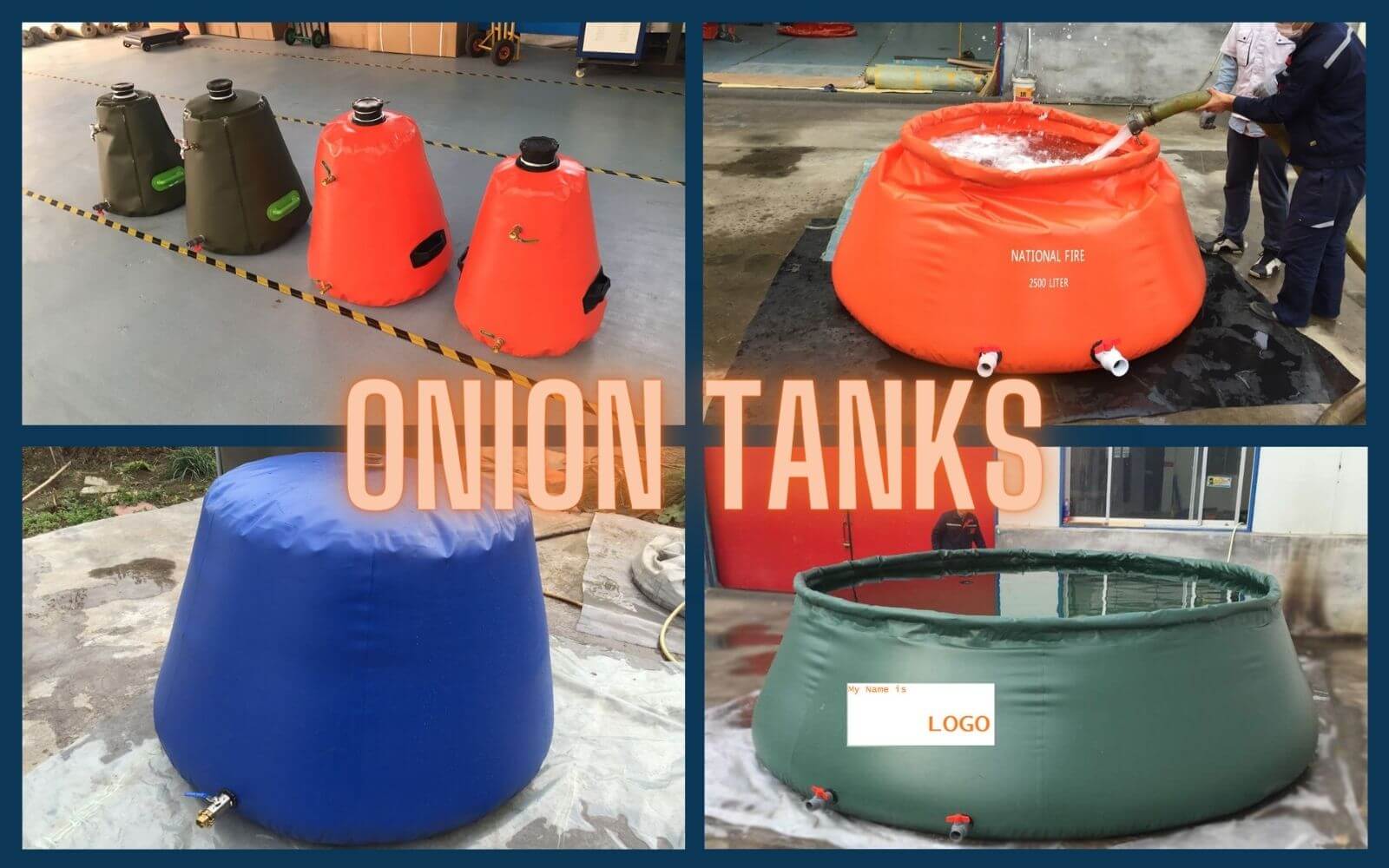Onion tanks, also known as pumpkin tanks, are innovative self-supporting water storage solutions that have gained popularity in various industries.
Their unique design and functionality make them ideal for a wide range of applications.
In this article, we will explore the versatility of onion tanks and provide insights into where and how to use these self-supporting tanks effectively.
Onion tanks
are flexible and self-supporting water storage containers.
- Their collapsible design allows for easy setup and transportation.
- Made from durable materials, they provide temporary water storage solutions without the need for external support.
- Special self-supporting property, provides ease of setup and installation.

In Firefighting Operations:
Onion tanks play a vital role in providing a readily available water source.
Their collapsible structure allows for quick setup and transportation to the desired location.
Whether it’s a remote area or an urban environment, onion tanks can use rapidly, ensuring immediate access to water for firefighting teams.
- Emergency Water Supply Situations:
Natural Disasters: such as hurricanes, floods, earthquakes, or tsunamis.
Humanitarian Crises: In regions affected by conflict, displacement, or refugee situations.
Drought and Water Scarcity: During prolonged periods of drought or water scarcity, communities.
Infrastructure Failures: Infrastructure failures like burst water mains, water treatment plant malfunctions, or pipeline damages can disrupt the regular water supply.
Contamination Events: Chemical spills, pollution incidents, or microbial outbreaks can lead to water contamination.
Remote Areas: Remote or isolated communities with limited access to municipal water supply.
Power Outages: Extended power outages can affect water treatment and distribution systems.
Medical Facilities: Hospitals, clinics, and other healthcare facilities.
In irrigation systems
Onion tanks serve as efficient storage vessels for holding water sourced from wells, rivers, or rainwater collection systems.
They provide a reliable and easily accessible water supply for irrigating crops, ensuring proper hydration and growth.
- Livestock watering is another crucial aspect of agriculture, and onion tanks prove beneficial in this regard.
Using to store water for watering livestock, ensuring a constant supply of clean water for their hydration needs.
In construction projects
Pumpkin tanks use for storing water to meet various needs.
Tanks are commonly utilized for concrete mixing, ensuring a reliable and readily available water supply for construction processes.
Additionally, these tanks are essential for dust suppression, equipment cleaning, and general construction site water requirements.
- Remote worksites, such as mining operations or infrastructure projects in distant locations, often face challenges with limited access to water sources.
Foldable self-support tanks prove invaluable in such scenarios by providing a portable and convenient means of storing water.
Their collapsible nature enables easy transportation to remote areas and quick setup to meet the specific water demands of the worksite.
Military
One of the primary uses of onion tanks in the military is for potable water storage.
In field operations or remote deployments where access to clean water is limited.
- Additionally, onion tanks are employed in military firefighting operations.
Temporary reservoirs for storing water used in firefighting, allowing rapid response and containment.
Flexible pumpkin tanks, offer a versatile and self-supporting water storage solution for various industries and applications.
Whether it’s firefighting, emergency water supply, agriculture, construction, military operations, or outdoor events, these tanks prove their value in temporary water storage needs.
By utilizing onion tanks, organizations and individuals can ensure efficient and accessible water storage in a wide range of situations, ultimately promoting safety, sustainability, and convenience.
Their portability, ease of setup, and ability to adapt to different environments make them a reliable choice.








